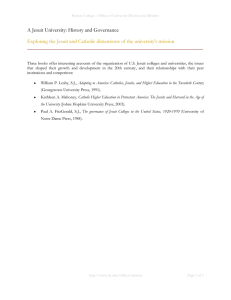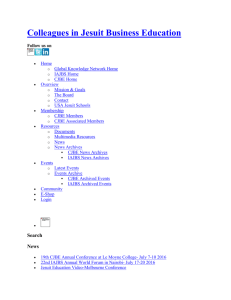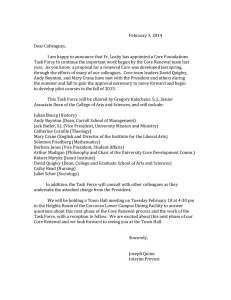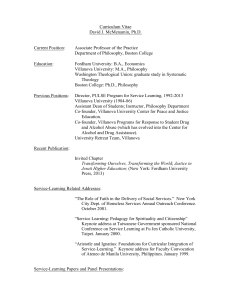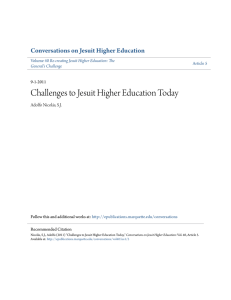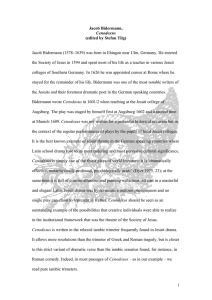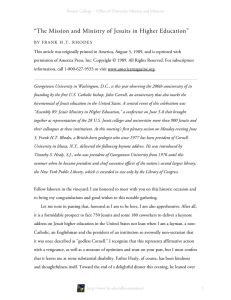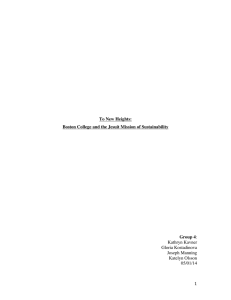“What It's All About”
advertisement
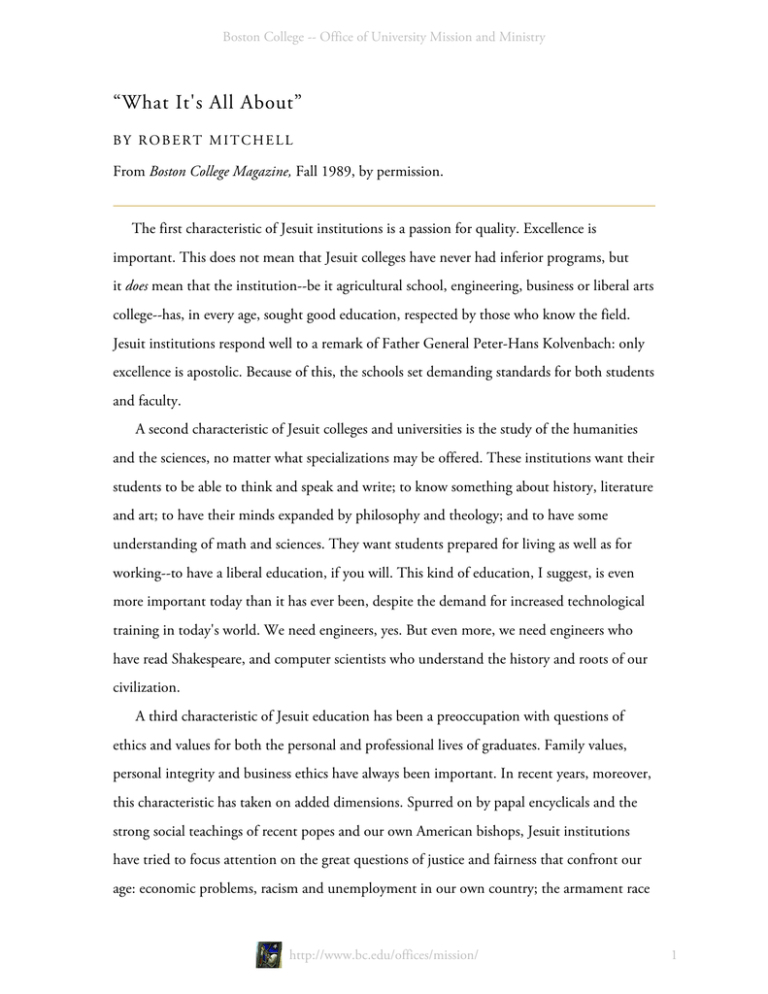
Boston College -- Office of University Mission and Ministry “What It's All About” BY ROBERT MITCHELL From Boston College Magazine, Fall 1989, by permission. The first characteristic of Jesuit institutions is a passion for quality. Excellence is important. This does not mean that Jesuit colleges have never had inferior programs, but it does mean that the institution--be it agricultural school, engineering, business or liberal arts college--has, in every age, sought good education, respected by those who know the field. Jesuit institutions respond well to a remark of Father General Peter-Hans Kolvenbach: only excellence is apostolic. Because of this, the schools set demanding standards for both students and faculty. A second characteristic of Jesuit colleges and universities is the study of the humanities and the sciences, no matter what specializations may be offered. These institutions want their students to be able to think and speak and write; to know something about history, literature and art; to have their minds expanded by philosophy and theology; and to have some understanding of math and sciences. They want students prepared for living as well as for working--to have a liberal education, if you will. This kind of education, I suggest, is even more important today than it has ever been, despite the demand for increased technological training in today's world. We need engineers, yes. But even more, we need engineers who have read Shakespeare, and computer scientists who understand the history and roots of our civilization. A third characteristic of Jesuit education has been a preoccupation with questions of ethics and values for both the personal and professional lives of graduates. Family values, personal integrity and business ethics have always been important. In recent years, moreover, this characteristic has taken on added dimensions. Spurred on by papal encyclicals and the strong social teachings of recent popes and our own American bishops, Jesuit institutions have tried to focus attention on the great questions of justice and fairness that confront our age: economic problems, racism and unemployment in our own country; the armament race http://www.bc.edu/offices/mission/ 1 Boston College -- Office of University Mission and Ministry between the superpowers; and poverty and oppression in the Third World, to cite some examples. These are not easy questions, nor do they have any certain and universally accepted answers. But Jesuit institutions today feel compelled by their tradition to raise these questions for their students, not through sloganeering and political maneuvering, but in a way that is proper for higher education: through learning, research, reflection and imagination. A fourth characteristic of Jesuit education is the importance it gives to religious experience. It does this best, I suspect, for its Catholic students. However, especially in this ecumenical age, it tries to open this horizon for all its students, whatever their religious persuasion. Religious experience is important and it needs to be integrated into the educational process so that a student has the opportunity to grow in both knowledge and faith, in both belief and learning. Faith in God is not an obstacle to learning; indeed belief can often sharpen and focus a mind. Prayer and liturgy are no threat to knowledge; they help form an educational community in the fullest sense of the word. Finally, related to this last is another characteristic of Jesuit education. It is personcentered. No matter how large or complex the institution, the individual is important and given as much personal attention as humanly possible, both in and out of the classroom. I believe that the reason for this specific attention to the individual is that for many in these institutions, teaching or administration is much more than a job--indeed, more than a profession. It is a vocation. This is true not only for members of religious orders but for so many lay men and women of different religious backgrounds, who look on their work of teaching or administration as sharing in God's work, as a ministry to others in the apostolate of education. Fr. Mitchell has been president of the University of Detroit since 1979. This essay is excerpted from his address at the Boston College Alumni Association's 1988 Laetare Sunday Breakfast. http://www.bc.edu/offices/mission/ 2
